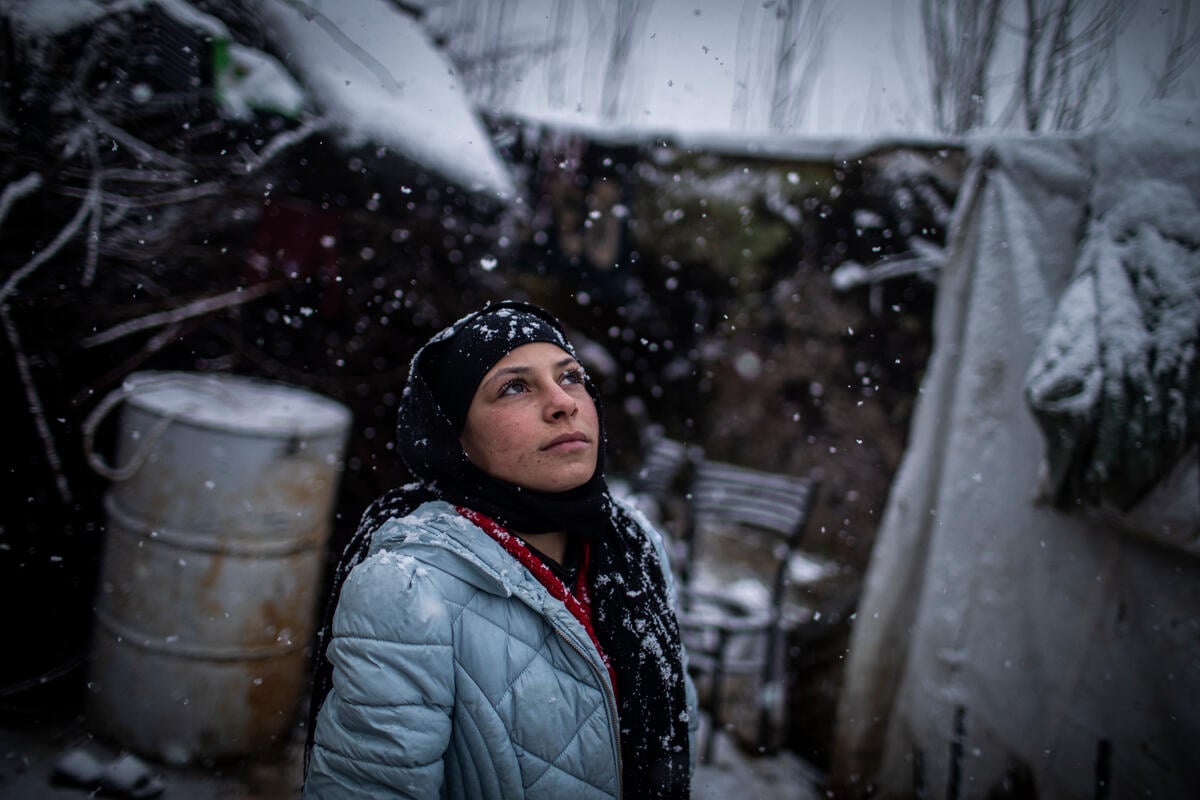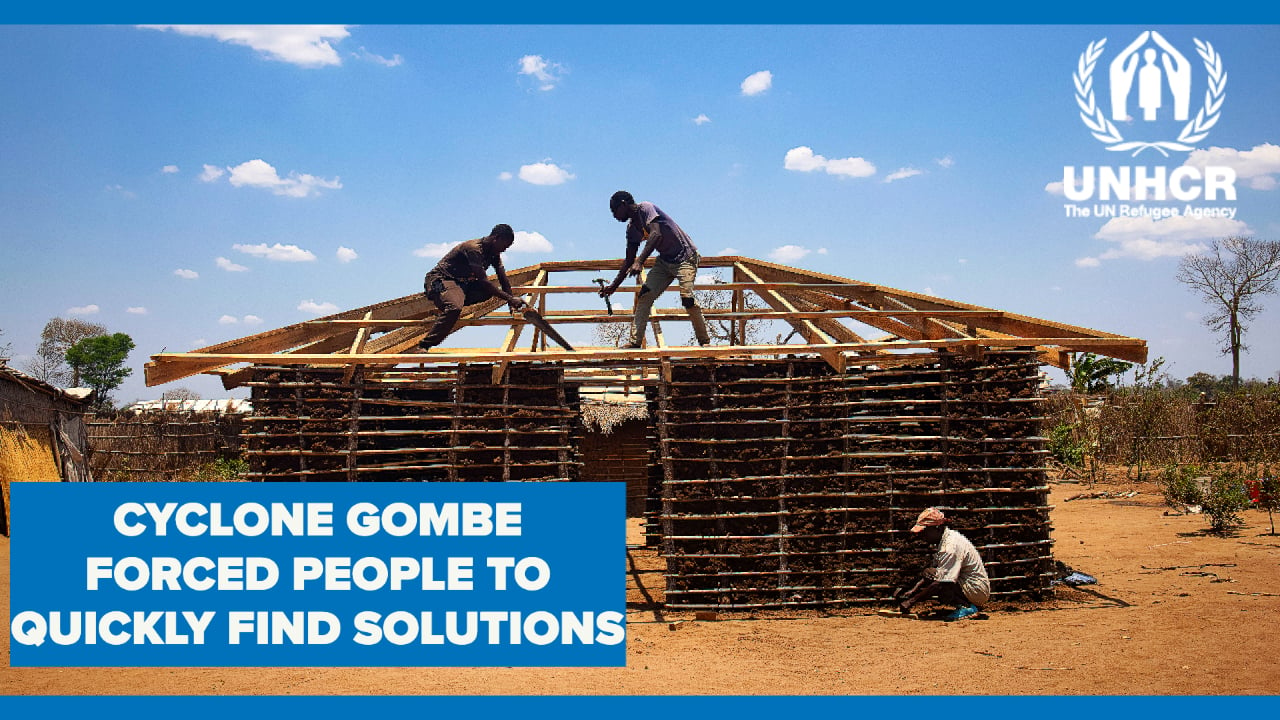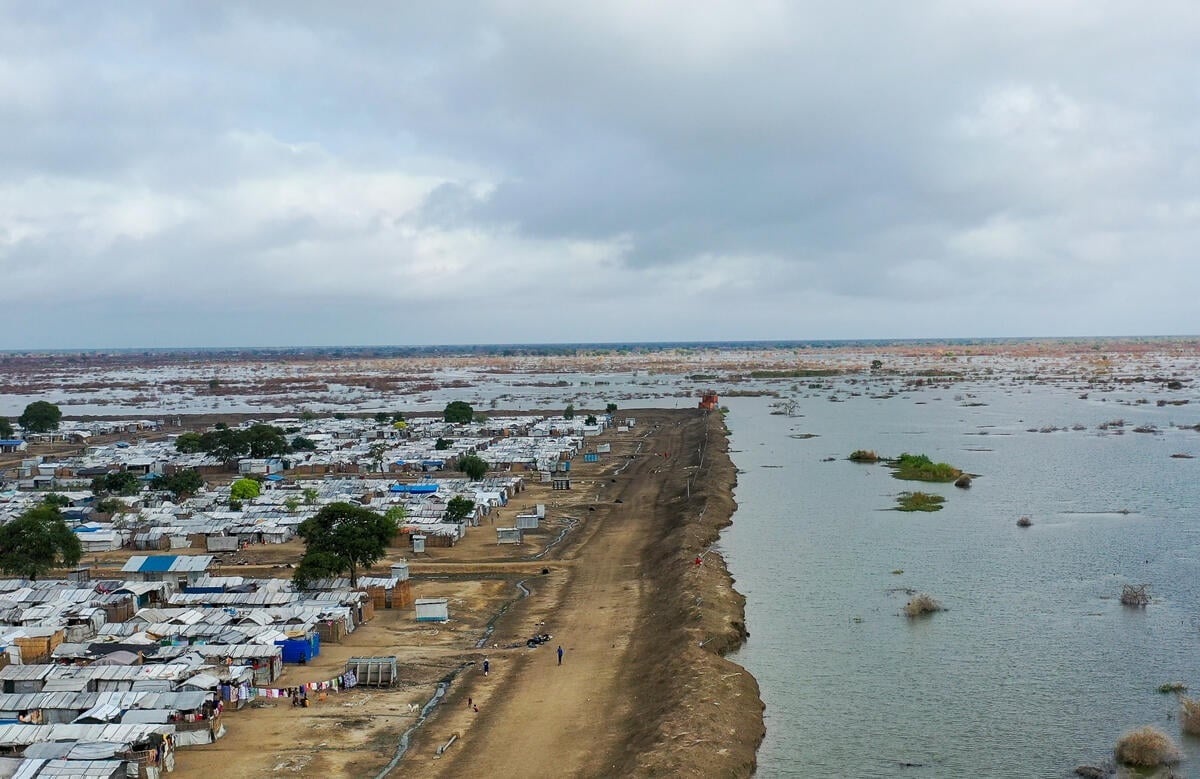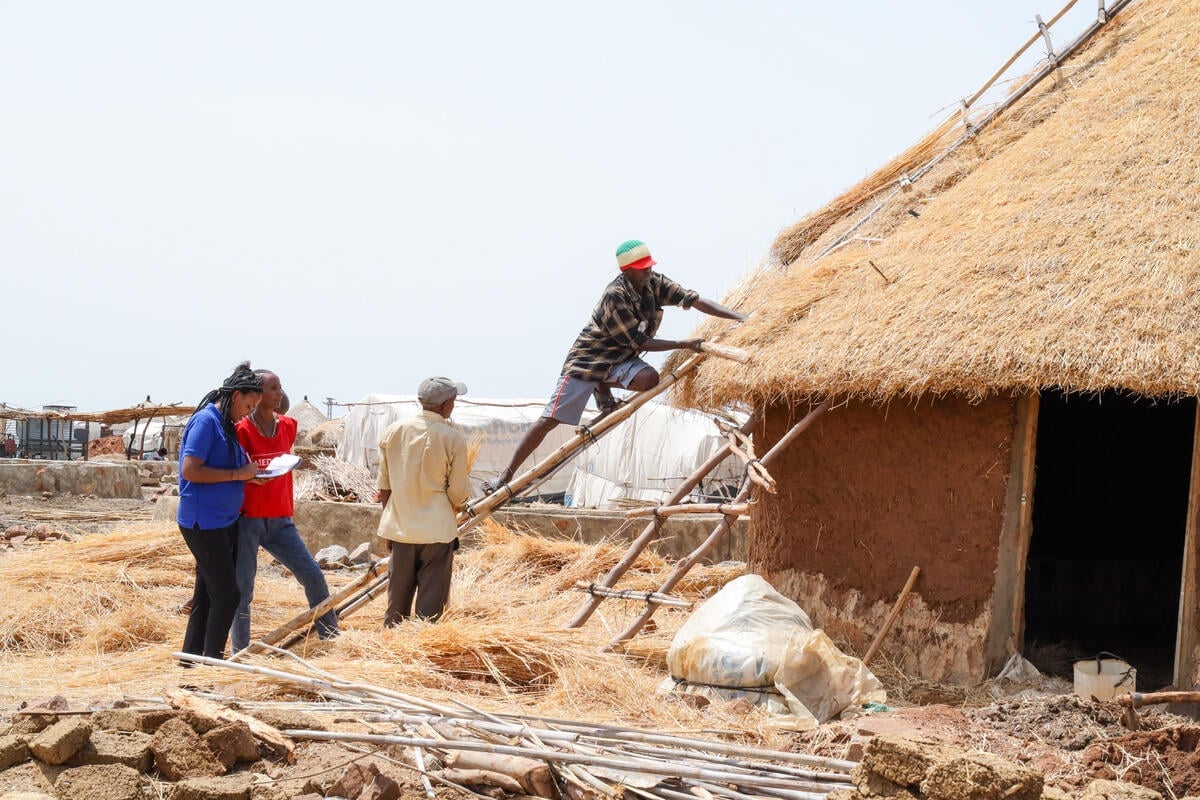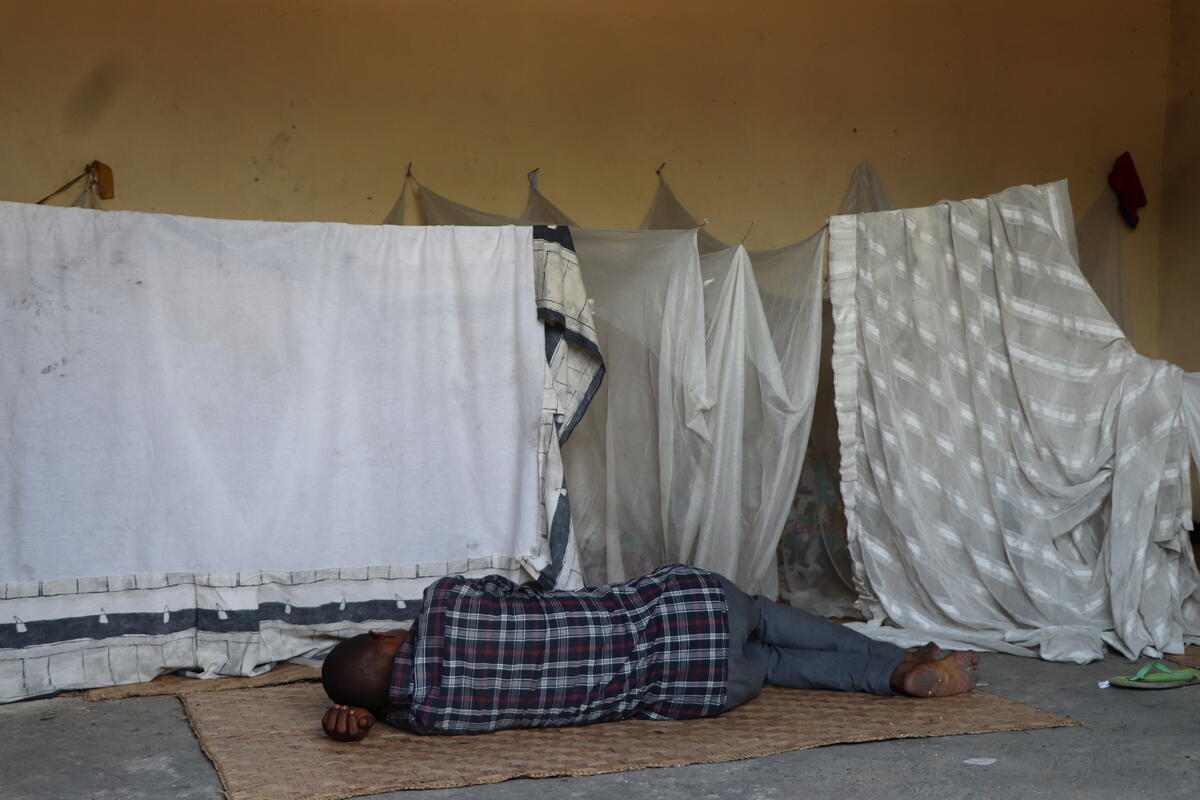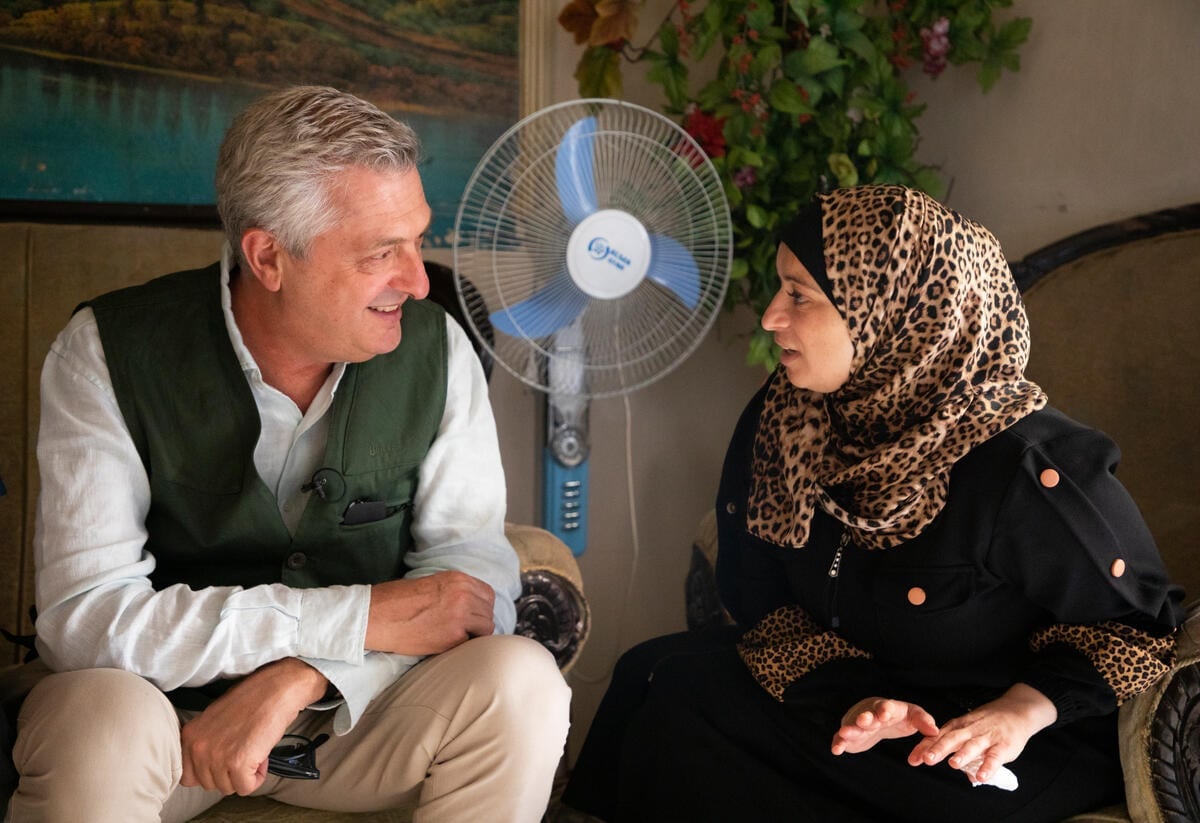UNHCR, Afghans race against time to rebuild before winter
UNHCR, Afghans race against time to rebuild before winter

KABUL, Afghanistan, August 2 (UNHCR) - With just three months to go before the onset of winter weather, the UN refugee agency is rushing to provide shelter for up to 400,000 returnees in rural Afghanistan.
"Winter is certainly on the minds of the more than one and a half million Afghans we've so far helped home," said UNHCR spokesman Ron Redmond in Geneva. "We're working to provide shelter for up to 400,000 people this year, and with so much of Afghanistan in ruins, they need all the help they can get."
In all, 50,000 shelter kits - consisting of 30 wooden poles, a door, two window frames, nails and tools - will be distributed in devastated areas including the Shomali Plain in Kabul Province, and elsewhere throughout the country including areas around Mazar-i-Sharif in the north, Herat in the west, Kandahar in the south and Ghazni in central Afghanistan.
In addition to shelter kits, tents have also been handed out to families in the Shomali Plain and central highlands areas like Bamyan that were particularly hard-hit during years of fighting. This is to provide temporary shelter while they rebuild their homes. All refugees going home under the UNHCR-assisted voluntary repatriation programme also receive two plastic tarpaulins in their returnee packages.
So far, UNHCR has made agreements with 15 non-governmental organisation (NGO) partners to identify needy families and distribute more than 41,000 of the 50,000 planned shelter kits. The idea is to have families make the necessary mud bricks themselves. Once they have rebuilt their homes up to about shoulder height, the agency's NGO partners will hand over the kits so that returnees can construct the roof and the necessary support beams.
As part of its $35-million shelter programme, UNHCR has shipped 240 metric tons of nails to distribution points throughout Afghanistan, along with 240,000 door hinges and a similar number of tool kits, each containing a hammer, shovel and pickaxe. The agency has purchased 40,000 cubic metres of timber (beams and lintels), and is seeking regional suppliers to provide 263,000 more beams. It is also funding local carpentry workshops in which Afghan craftsmen build doors and windows needed for the shelter kits.
But finding enough NGOs with the staff necessary to evaluate shelter needs in many areas of devastated Afghanistan is a challenge. UNHCR is also competing with returnees for trucks to ensure that its supplies get delivered throughout the country.
"It's a real race against time to ensure that needy Afghans have the shelter they need to get through the winter," said Redmond.
UNHCR, which is facing a $42 million funding shortfall in Afghanistan, had originally planned to provide 97,000 shelter kits this year. But it had to halve the programme to ensure adequate funds to provide travel assistance for the number of returnees, which has exceeded expectations.
Since the joint UNHCR-Afghan Transitional Authority initiative started in March, more than 1.4 million Afghans have returned, mostly from Pakistan and Iran. More than 200,000 internally displaced persons (IDPs) have also gone home with the help of UNHCR, International Organization for Migration (IOM) and other agencies. Another over 400,000 displaced Afghans have returned without assistance, joining an estimated 200,000 refugees who have spontaneously repatriated.


